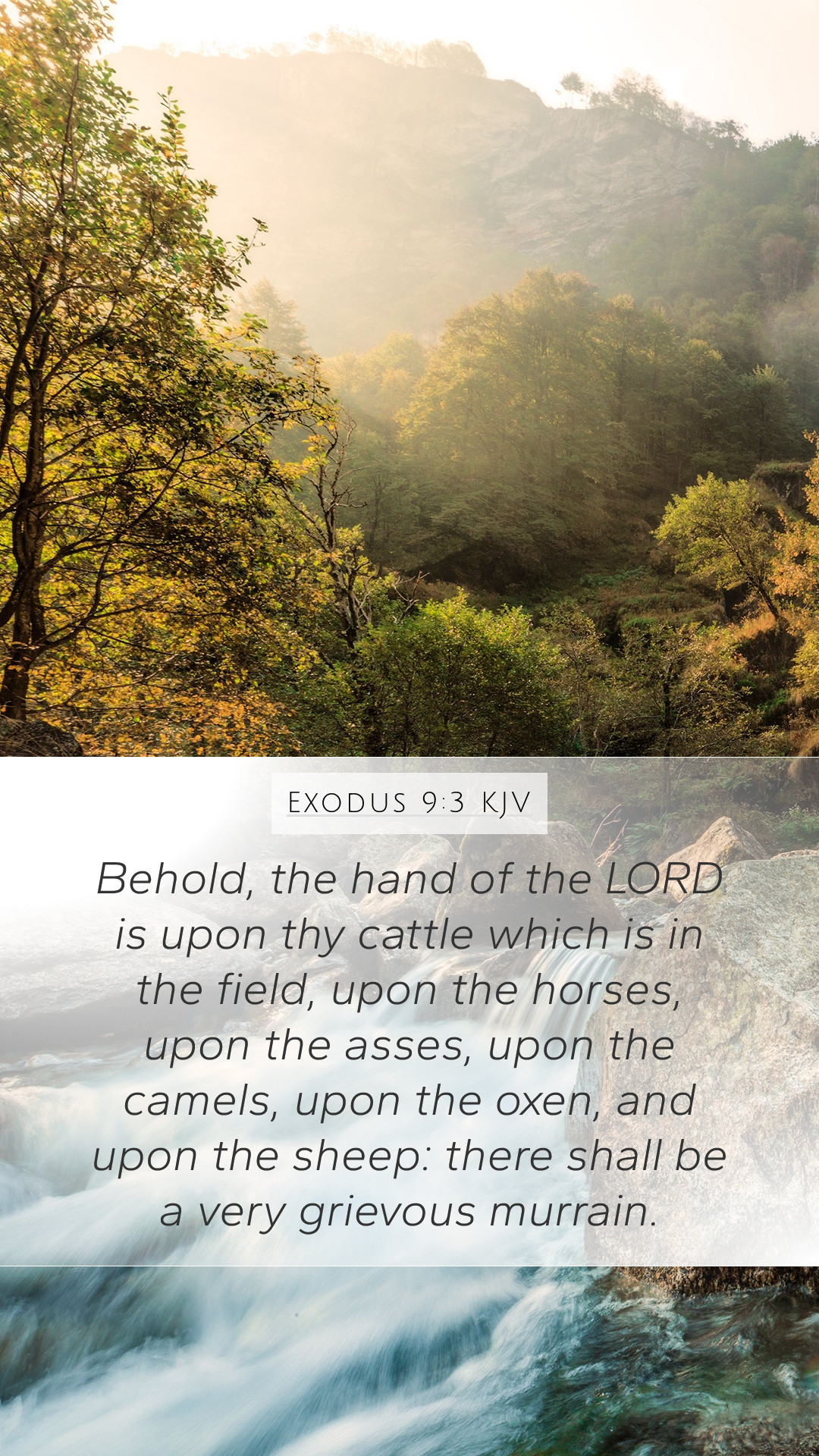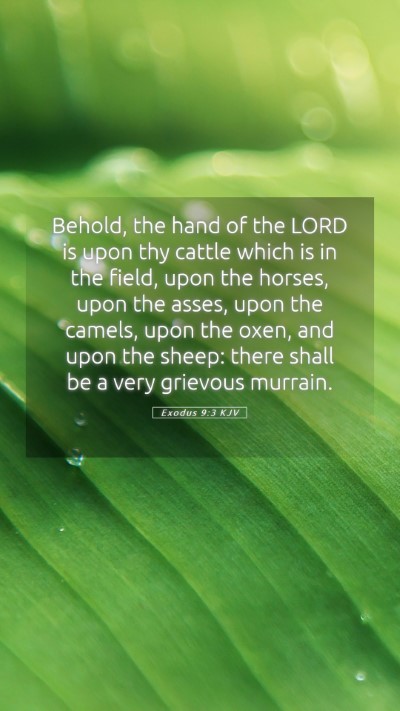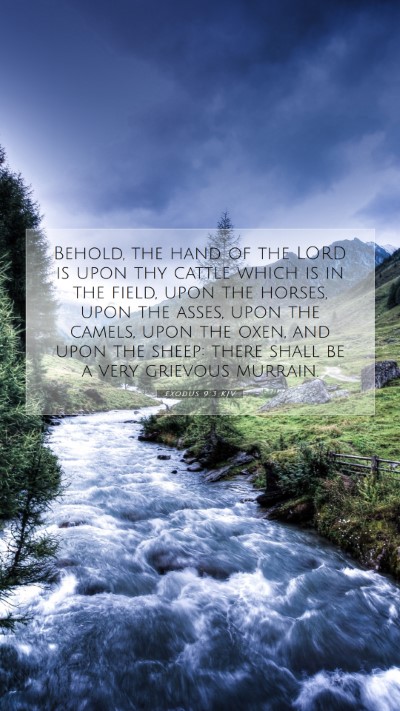Understanding Exodus 9:3
Exodus 9:3 states:
"Behold, the hand of the Lord is upon thy cattle which is in the field, upon the horses, upon the asses, upon the camels, upon the oxen, and upon the sheep: there shall be a very grievous murrain."
Bible Verse Explanation
The context of this verse is God's warning to Pharaoh through Moses regarding the plagues that were to come upon Egypt, specifically addressing the impending judgment on the livestock. Understanding Exodus 9:3 provides insight into God's sovereignty and His power over creation.
Commentary Insights
-
Matthew Henry's Commentary explains that this verse illustrates God’s authority over all living things and emphasizes the severity of the impending plague. It serves as a divine warning that not only humans but all aspects of Pharaoh's kingdom would suffer due to his hardened heart.
-
Albert Barnes highlights that the word "murrain" refers to a disease striking livestock. This plague was a direct challenge to the Egyptian deities, who were thought to protect their animals, showing that there is only one true God who commands nature.
-
Adam Clarke points out that this declaration serves to demonstrate both warning and judgment. The specificity of livestock mentioned signifies that the impact of God’s wrath will be total and unmistakable.
Biblical Exegesis
The use of “the hand of the Lord” indicates a direct action from God, which signifies active involvement in earthly affairs. This verse is also a reminder of God's justice, delivering consequences for ongoing disobedience, specifically relating to Pharaoh's refusal to release the Israelites from bondage.
Significance of Exodus 9:3 in Scripture
This verse serves several purposes in biblical understanding:
- Affirmation of God’s Authority: It shows that God’s dominion extends over all creation.
- Divine Intervention: The verse illustrates God's direct intervention in human affairs and events.
- Foreshadowing of Plagues: It is part of a series of events that lead to the liberation of the Israelites, emphasizing the seriousness of Pharaoh's decisions.
Applying Exodus 9:3 to Daily Life
For modern readers, this passage can be viewed as a reminder of the consequences that arise from turning away from God's commands. Moreover, it emphasizes the importance of heeding warnings and the repercussions that can follow disobedience, applicable to both personal conduct and leadership.
Cross References
- Exodus 5:1-2: Pharaoh's initial refusal to let the Israelites go, setting up the need for divine intervention.
- Exodus 12:29-30: The final plague and the death of the firstborn, underlining the seriousness of God's warnings.
- Deuteronomy 7:15: God's promise to protect the obedient and the consequences of straying from His commands.
Study Resources
For those engaging in Bible study groups or personal study, the following insights may aid in deeper understanding:
- Bible study tools for cross-referencing.
- Online Bible study courses that explore the book of Exodus in detail.
- Bible study guides focusing on the nature of God's plagues and their implications.
Conclusion
Exodus 9:3 encapsulates the themes of divine authority, judgment, and the call to obedience to God. The plague declared upon Egypt serves not just as a historical event but as an enduring reminder of the importance of responding to God's calls in our own lives, illustrating the need for biblical understanding and interpretation.


